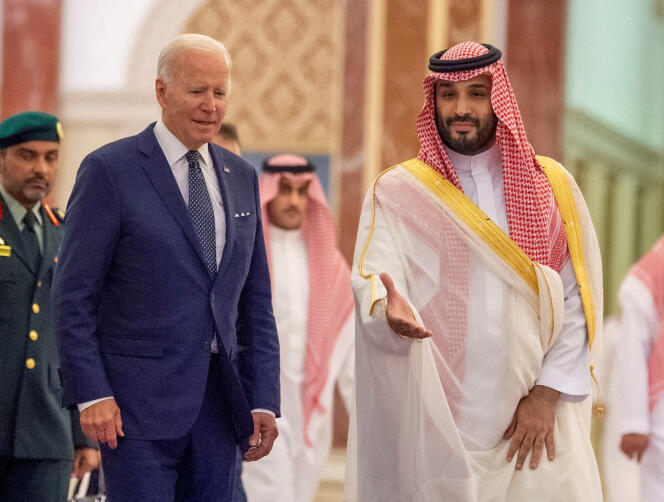


Seen from Riyadh, Tel Aviv and Washington, the normalizing of relations between Saudi Arabia and Israel seemed to be on track. Saudi Arabia was negotiating the details of a security pact and a nuclear program with US President Joe Biden's team, in exchange for recognition of the Jewish state. The Palestinian question, while referred to as "substantial," nevertheless appeared almost insignificant. That is, until the offensive launched against Israel by the nationalist Palestinian group Hamas on Saturday, October 7.
The complexity of the operation suggests that Hamas had been planning this offensive, which has blown apart the status quo, for months. "Hamas threw a bomb into the room. The aim is to push the Israelis into reprisals that make it impossible for the Saudis to go ahead with normalizing relations," said Hussein Ibish, a researcher at the Arab Gulf States Institute in Washington. Lebanese militant group Hezbollah called the attack a "heroic operation" and a "message to the Arab and Muslim world, in particular to those seeking to normalize their relations [with Israel]".
For Hamas and its supporters in the Iranian-led "axis of resistance" to Israel, a rapprochement with Saudi Arabia would be more dangerous than that sealed with Israel in 2020 by the United Arab Emirates, Bahrain and Morocco. The Palestinian question could be settled on the cheap. The security alliance between Israel and the US-sponsored Gulf powers would be strengthened to the detriment of Iran, while Riyadh and Tehran are still battling for regional supremacy, despite the signing of a détente agreement in March.
Direct involvement of Hezbollah and Iran in the attack has not yet been established. They have aided Hamas and the Islamic Jihad movement over the years, both financially and with technology and expertise, to build up a sophisticated ballistic arsenal and train their fighters. "Their message is coordinated: without substantial concessions, there will be no normalization agreement, and it is Iran, not the Arabs, that remains the holder of the Palestinian file," said a source well acquainted with the subject.
Tehran was showing signs of impatience with speculation over the rapprochement. On the sidelines of the United Nations General Assembly in New York on September 20, Iranian President Ebrahim Raissi denounced the agreement as "a capitulation" and "a stab in the back for the Palestinian people and the Palestinian resistance".
In an interview with US TV channel Fox News on the same day, Saudi Crown Prince Mohammed Ben Salman gave the impression that he could be satisfied – if the Palestinian Authority (PA) accepted it – with a compromise closer to the "economic peace" offered by Israel than to the 2002 Arab peace plan, which made the establishment of relations with Israel conditional on the creation of a Palestinian state. Palestinian President Mahmoud Abbas's party Fatah showed itself willing to play the game of negotiation, not without satisfaction at being put back in the saddle by Riyadh, after years of deteriorating relations.
You have 60.32% of this article left to read. The rest is for subscribers only.
